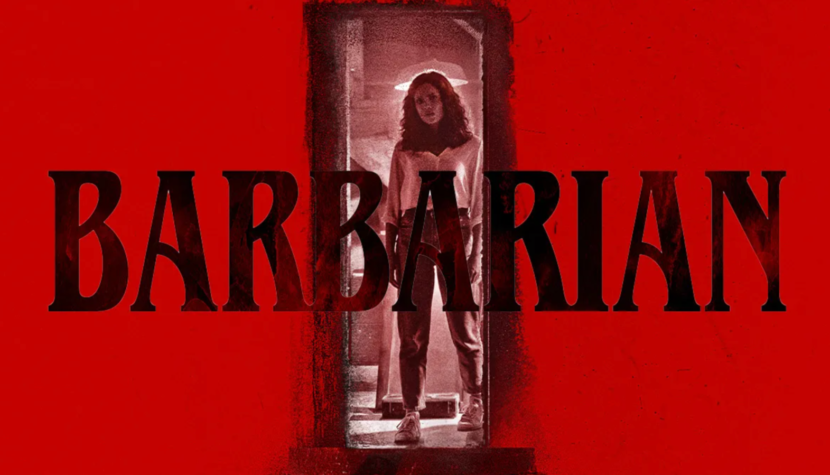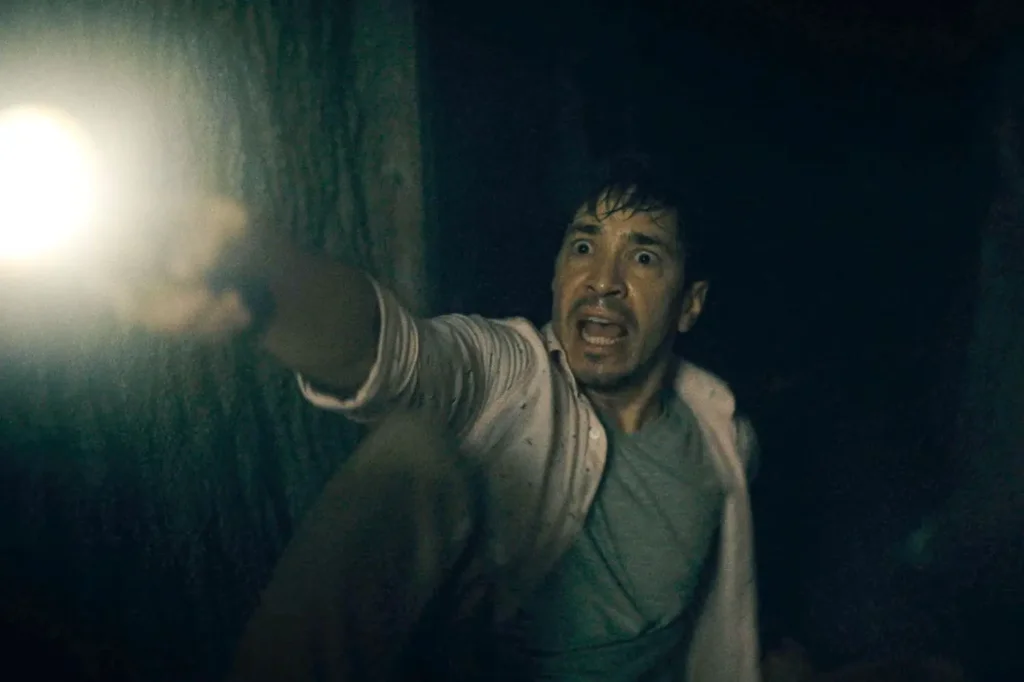BARBARIAN. A very clever horror film

Do you know that type of horror movie which, at the most basic level, is essentially a guide on what to do—or rather, what not to do—in certain situations? Slashers often suggest that running upstairs in a house usually ends with multiple stab wounds, and they teach that a secluded house is not the best location for a weekend getaway. Barbarian by Zach Cregger teaches us that an Airbnb in a deserted neighborhood of a once-great city can also be a breeding ground for evil.
Detroit, once the capital of American automotive manufacturing, has in recent years earned the title of a “horror location”—the ongoing housing crisis, a result of the global economic downturn in the first decade of the 21st century, caused the city’s population to shrink by 25%, leaving some neighborhoods deserted. It is in one such neighborhood, Brightmoor, where the main character of Barbarian—Tess (played by Georgina Campbell)—stays. In the middle of a nighttime downpour, she pulls up to a reasonably well-kept house, checks the code on her phone needed to open the key box, only to find… the box is empty. As Tess tries to resolve the situation over the phone, she notices that someone is already in the house she rented. She knocks on the door, which is opened by Keith (Bill Skarsgård), a seemingly reasonable thirty-something who is just as surprised by the situation. Despite her initial reservations, Tess decides to accept the man’s proposal to “share” the reservation and sort things out in the morning. Does this sound suspicious? Maybe yes, maybe no.

Zach Cregger, the writer and director of Barbarian, knows well how to play with horror conventions. He leads the audience on, and even when it seems like we’re about to find out “what could go wrong,” Cregger shows us that we actually know nothing. Barbarian is divided into two chapters, and just when we think the events of the first are final, the director shows us how mistaken we were. Between the chapters, there’s also a significant shift in tone—from a rather classic horror narrative, where danger lurks around every corner, to a more comedic one, largely thanks to the character played by Justin Long, who portrays the celebrity owner of the property rented by Tess and Keith. AJ is an exceptionally lousy guy who, after a sexual assault on a colleague on a film set, quickly loses his status and money. He comes to Detroit to liquidate the rental property, but that might not be as easy as it seems…
In the second half, Barbarian becomes a film not entirely serious, like when the reaction to discovering a secret passage in the basement is a quick Google search to see if underground tunnels increase the value of a property. However, evil still lurks within the walls of the house in the ruined neighborhood—and it’s not the kind of evil usually found in “home invasion” films. While building the tension in his horror, Cregger also tells the story of Brightmoor—once a beautiful, small-town-like area that in the 1980s was full of stunning cars, children riding tricycles, and neatly trimmed lawns. However, in one of the flashbacks, we hear a conversation between neighbors where someone says, “the neighborhood is going downhill.” Signs were already appearing that both Brightmoor and all of Detroit would face a crisis—though no one likely expected it to become a prime setting for numerous horror films.

Barbarian fits beautifully into the trend of socially conscious horror, which in recent years has been driven by filmmakers like Jordan Peele. Zach Cregger may not use such veiled forms, but he clearly suggests that the neglect of a neighborhood—primarily by authorities, as seen in Tess’s interaction with the police—allowed evil and corruption to flourish unchecked. The slow depopulation of Brightmoor enabled wrongdoers to commit crimes with impunity, and amid the ruins of what was once a charming district, only pain and suffering remain.
Where there is no control, darkness arises.

